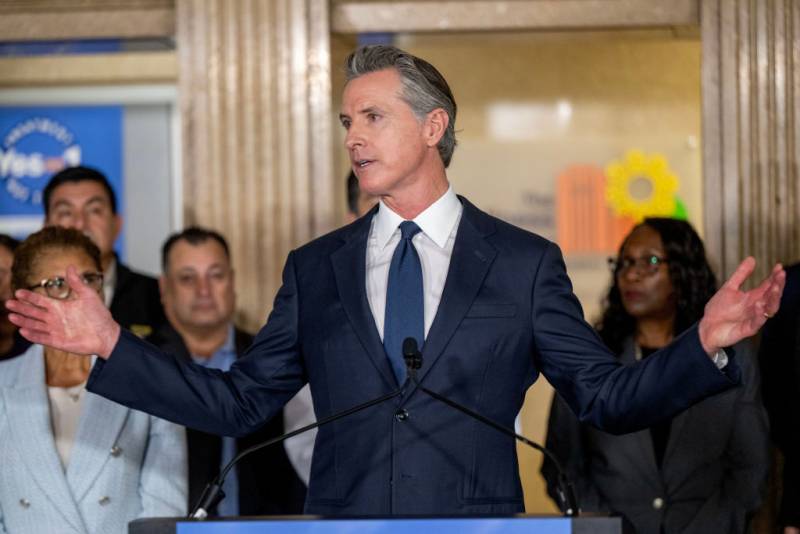“It’s always easier to run a ballot measure that is extremely simple and clear to voters,” she said. “The more they have to research, the more they have to unpack, the more they have to figure out themselves, the harder it is to get them to vote yes.”
On Thursday, Newsom said voters may have been skeptical that the housing promised by Proposition 1 would be built quickly, citing the slow rollout of previous state bonds. But the governor pointed to language in the measure that will allow projects to skip environmental review.
“We’re going to start putting out notices for funding availability in just a matter of months, the first ones come out in October,” Newsom said. “That’s unprecedented in California history.”
With funding secured, Newsom turned his attention to California’s county governments, who will largely be tasked with implementing the new behavioral health law.
“We’ve done our job, now the cities and counties need to step up,” Newsom said.
Many of those same counties opposed Proposition 1, fearing that the new focus on housing would reduce funding for the counseling, screening and preventative programs that counties currently bankroll.
Michelle Doty Cabrera, executive director of the County Behavioral Health Directors Association, applauded the new investments in housing but said, “Such a massive shift in our behavioral health care system will take time.”
